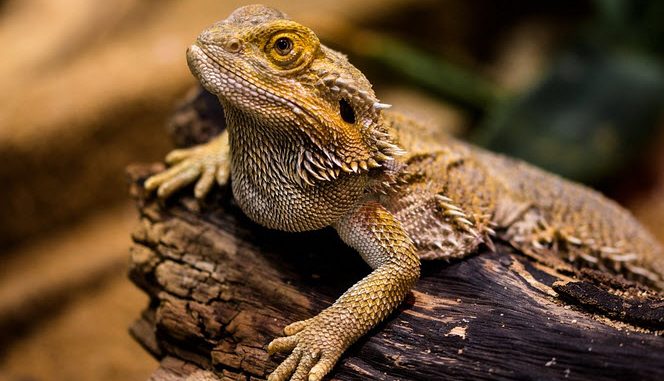
It’s been known for quite some time that sex determination in bearded dragon embryos are impacted by the ambient temperature when the eggs are incubated. Now, researchers in Australia has managed to shed some light on this fascinating process.
A new report published online in Science Advances on 14 June reveal that temperature can induce changes in the RNA’s protein-making instructions in bearded lizard embryos.
32 degrees C
While humans and most other mammals have sex chromosomes, many species of reptiles and fish don’t. Instead, temperature decides if eggs will result in males or females.
The bearded dragon lizard is a bit special in the reptile world, because both temperature and chromosome combinations are known to influence its sex determination.
“They have two sex chromosomes, but they also have this temperature override,” says ecologist Clare Holleley of the Commonwealth Scientific and Industrial Research Organisation in Canberra, Australia (SN: 7/25/15, p.7).
During the study, Holleley and her coauthor Ira Deveson, a biologist at the Garvan Institute of Medical Research in Sydney, found that when the eggs of the Australian central bearded dragon (Pogona vitticeps) were incubated at temperatures below 32 degrees C, embryos with two Z chromosomes developed into males while embryos with one Z chromosome and one W chromosome developed into females. If the temperature was above 32 degrees C, both ZZ embryos and ZW embryos developed into females.
How do they make the switch?
In order to find out more about how the process works, Holleley and Deveson compared adult ZZ females and adult ZW females to each other. RNA was collected from the brain, reproductive organs and other tissue and Holleley et al studied it to see how genes could be turned on during incubation.
What Holleley and her colleges found was that ZZ females turned up the activity of several genes. Two of these genes were JARID2 and JMJD3 – both belonging to a group of genes known as the Jumonji family and known influence sex differential in many animals.
The researchers also found changes in the dragon’s RNA. While skimming through RNA data looking for JARID2 and JMJD3, Deveson noticed something out of the ordinary. It is widely known that RNA carried information from DNA that gets translated in proteins, and we also know that it normally gets “edited” prior to translation, i.e. selected sections are removed. In the ZZ females however, Deveson could see that one of the sections that would normally be removed was allowed to remain.
Deveson found that the RNA sections that stayed contained chemical codes that prematurely halted the translation of the RNA from these two genes into proteins. It remains unknown whether the proteins aren’t made at all or if they are made but modified into smaller versions.
Citations
I. Deveson et al. Differential intron retention in Jumonji chromatin modifier genes is implicated in reptile temperature-dependent sex determination. Science Advances. Published online June 14, 2017. doi: 10.1126/sciadv.1700731.
